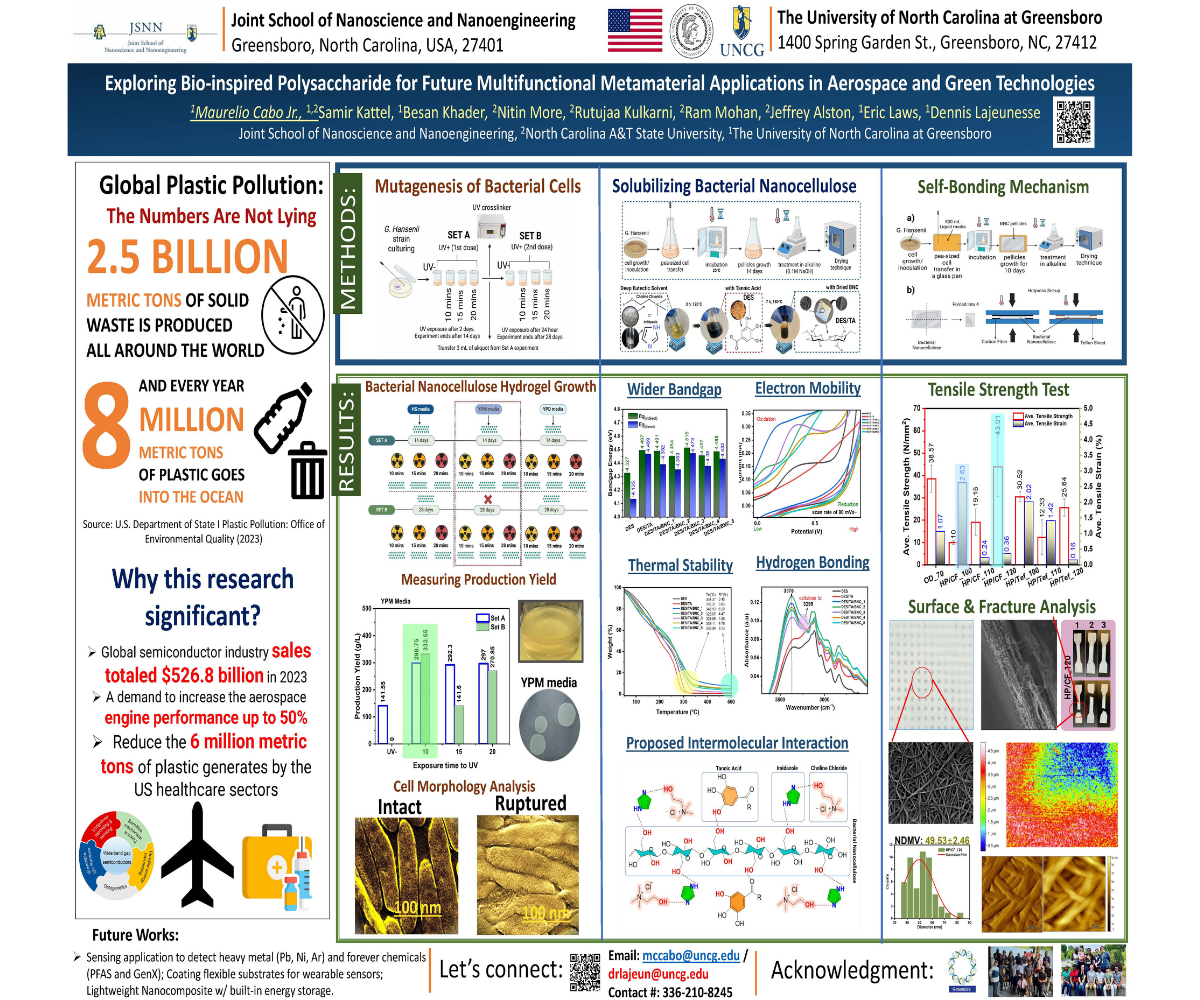
Bacterial nanocellulose (BNC) serves as a bio-inspired platform for developing multifunctional metamaterials, with potential applications in energy storage, aerospace, and biomedical technologies. This research integrates three key studies aimed at enhancing BNC’s performance and versatility. First, UV Radiation-Enhanced Production Yield increases scalability through sustainable biosynthesis, optimizing BNC production for larger-scale applications. Second, Dissolution into Polyphenol-Reinforced Deep Eutectic Solvent (DES) introduces tunable bandgap energy, highlighting BNC’s potential for use in biosemiconductor devices. This solution-based approach demonstrates the ability to modulate the material’s electronic properties, expanding its applicability to flexible electronics and energy storage systems. Lastly, Mechanical Property and Surface Modification are achieved through hot press drying using hydrophobic barriers, producing structurally robust nanolayers that prevent surface adhesion. The current findings showcase the potential of BNC to bridge sustainable biological materials with high-performance metamaterials. This multidisciplinary approach provides new opportunities to develop lightweight, adaptive systems that meet the demands of modern aerospace and green electronics industries. BNC’s unique combination of bio-inspiration, scalability, and tunable properties positions it as an innovative material for multifunctional systems. By integrating biosynthesis, dissolution, and mechanical enhancement strategies, this research contributes to advancing sustainable metamaterials that align with next-generation technological needs.